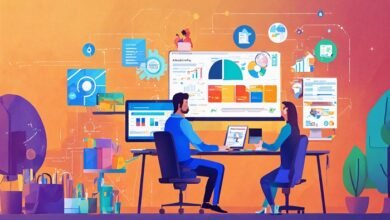The Concept of Agency: Empowerment, Responsibility, and Influence

Introduction
The term “agency” is a multifaceted concept that permeates various disciplines, from psychology and sociology to economics and philosophy. At its core, agency refers to the capacity of individuals or groups to make their own choices and to act independently to achieve their goals. This blog post will explore the different dimensions of agency, examining its significance, historical evolution, and its implications in contemporary society.
Defining Agency
Agency, in its simplest form, is the ability to act and make decisions autonomously. It is the power or capacity to exert influence over one’s own life and environment. This concept is crucial in understanding human behavior as it underscores the importance of individual and collective empowerment.
Historical Context of Agency
The concept of agency has evolved over centuries. In the past, agency was often limited by social structures and norms, with many individuals and groups having little say over their lives. Historical events, such as the Enlightenment and various civil rights movements, have significantly expanded the notion of agency, promoting the idea that all individuals possess the right to self-determination.
Psychological Perspectives on Agency
From a psychological standpoint, agency is deeply intertwined with concepts such as self-efficacy and autonomy. Psychologists argue that a strong sense of agency is essential for mental well-being. When individuals feel they have control over their actions and their environment, they are more likely to experience higher levels of motivation and satisfaction.
Social Agency and Its Impacts
Social agency refers to the capacity of individuals and groups to effect change within their communities. This form of agency is vital in social movements and community organizing, where collective action can lead to significant societal transformations. The power of social agency is evident in historical examples such as the civil rights movement and women’s suffrage.
Economic Agency
Economic agency is the ability to make economic decisions that affect one’s financial well-being. This includes decisions related to employment, investment, and consumption. Economic agency is crucial for financial independence and security. Understanding economic agency can help individuals make informed decisions that enhance their economic prospects.
Agency in Organizational Contexts
In organizational settings, agency refers to the capacity of employees to make decisions and take actions that influence their work environment and outcomes. High levels of agency within organizations can lead to increased job satisfaction, innovation, and productivity. It is essential for leaders to foster a culture that promotes and supports agency among employees.
The Role of Agency in Education
Agency plays a critical role in education, where it is associated with student engagement and achievement. When students are given the autonomy to make choices about their learning, they are more likely to be motivated and invested in their education. Educational practices that promote student agency can lead to more effective and meaningful learning experiences.
Barriers to Agency
Despite its importance, various factors can impede agency. These barriers can be structural, such as social inequalities and institutional constraints, or personal, such as lack of confidence or knowledge. Identifying and addressing these barriers is crucial for fostering a more equitable society where everyone has the opportunity to exercise their agency.
Enhancing Agency: Strategies and Practices
Enhancing agency involves creating environments that support autonomy and decision-making. This can be achieved through policies and practices that promote empowerment, education, and access to resources. For individuals, developing skills such as critical thinking and self-advocacy can enhance personal agency.
The Future of Agency
As society continues to evolve, the concept of agency will remain central to discussions about human rights, democracy, and social justice. Future advancements in technology, education, and policy will shape how agency is understood and practiced. Ensuring that agency is accessible to all individuals will be a key challenge and opportunity in the years to come.
Conclusion
Agency is a fundamental aspect of human existence, reflecting our ability to make choices, exert influence, and shape our destinies. By understanding the various dimensions of agency, we can better appreciate its role in empowering individuals and driving societal progress. Promoting agency across all facets of life is essential for fostering a more just, equitable, and dynamic world.
FAQs
1. What is the definition of agency?
Agency is the capacity of individuals or groups to make their own choices and to act independently to achieve their goals.
2. Why is agency important in psychology?
In psychology, agency is important because it is linked to self-efficacy, autonomy, and mental well-being. It reflects an individual’s ability to control their actions and environment.
3. How does agency impact economic decisions?
Economic agency affects decisions related to employment, investment, and consumption, which are crucial for financial independence and security.
4. What are some barriers to agency?
Barriers to agency can include social inequalities, institutional constraints, lack of confidence, and limited access to resources.
5. How can agency be enhanced in education?
Agency in education can be enhanced by promoting student autonomy, allowing choice in learning activities, and fostering environments that support independent thinking and decision-making.




